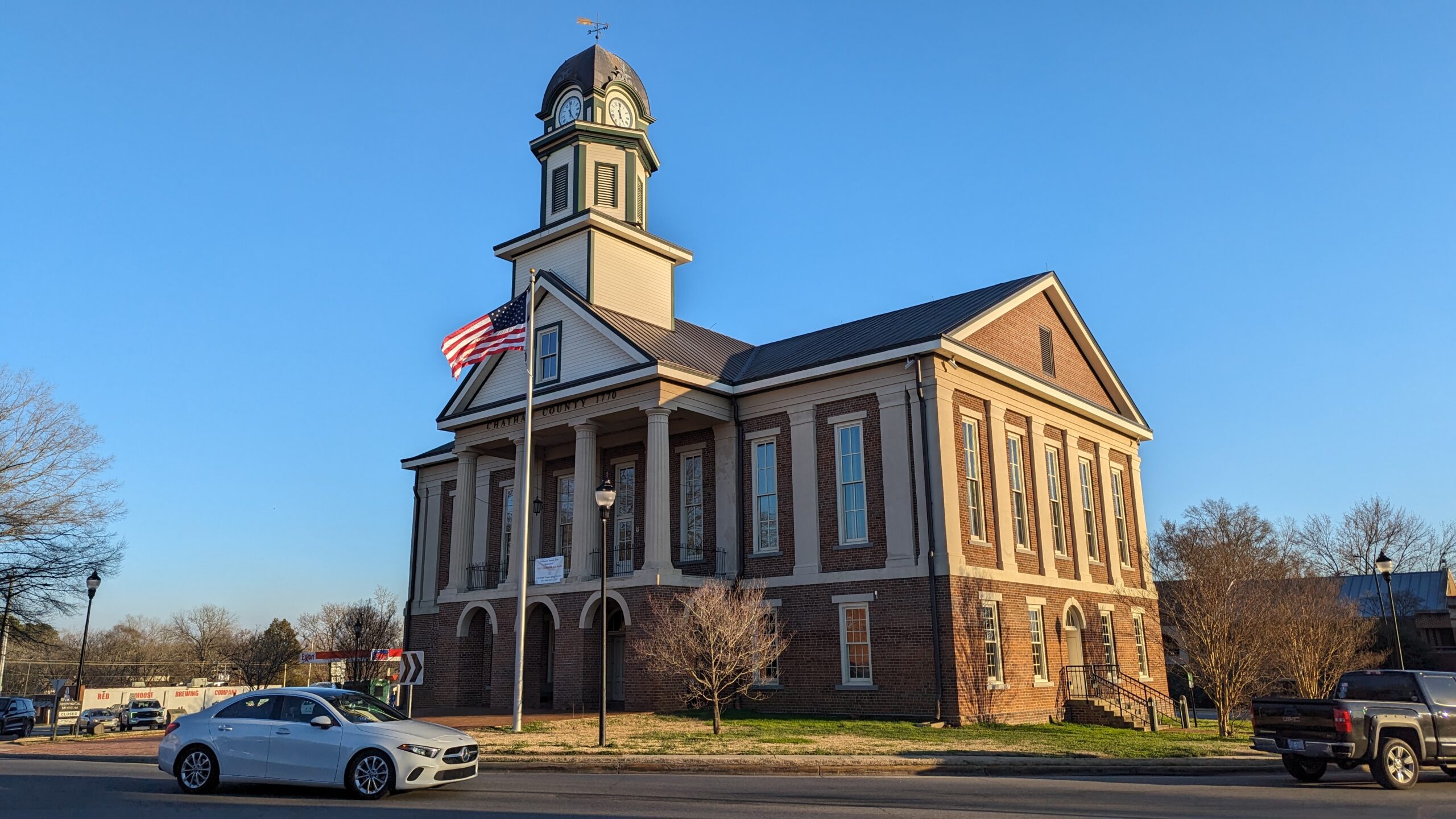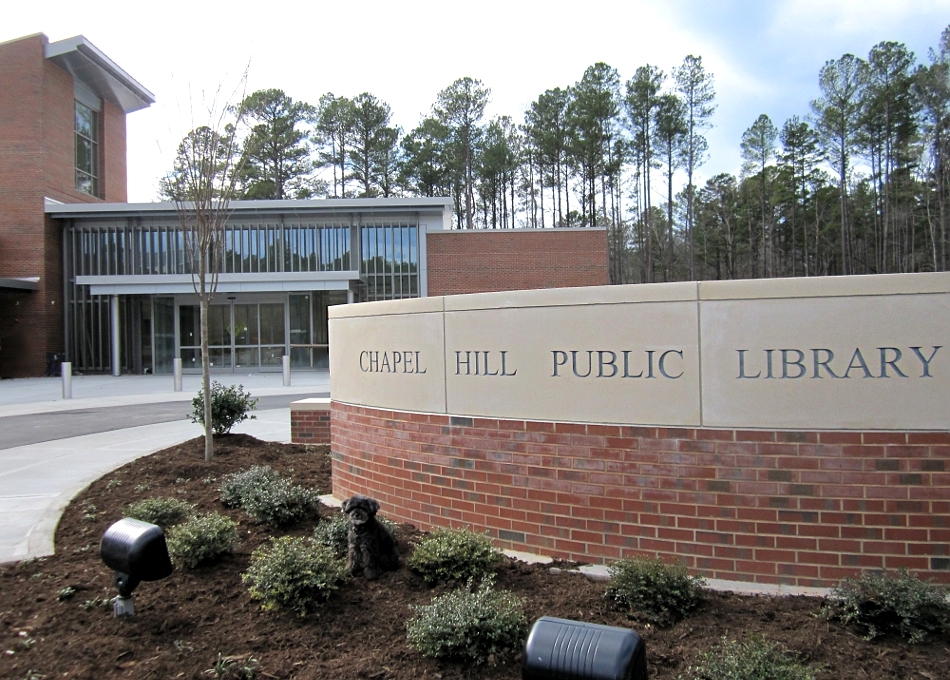North Carolina operates under a law that prohibits any county or municipality from restricting local law enforcement’s ability to cooperate with federal immigration officials.
Therefore, there are no technical sanctuary cities in the state.
However, that hasn’t stopped different local law enforcement from choosing what to prioritize in their respective towns. But now multiple proposals have been filed with varying penalties against sanctuary cities.
“I think all of the communities in Orange County and Durham and other places that have adopted resolutions in support of the immigrant communities and adopted resolutions about not turning our local police department into agents of the INS—I think those are the communities that are being targeted by this kind of legislation,” said County Commissioner Mark Dorosin.
Dorosin is also the managing attorney for the UNC Center for Civil Rights. He said it’s always been important that Orange County be inclusive of everyone.
“If you live in a community where folks are afraid to call the police, that’s also a community that’s going to be vulnerable to being victimized for crime. Or potentially most marginalized when there’s an emergency like the OWASA emergency,” which left approximately 80,000 residents in southern Orange County without water earlier this year.
The original House Bill would withhold tax revenues from things like beer and wine sales, telecommunications and natural gas from governments that violate the 2015 ban on sanctuary cities.
The new Senate Bill does all that but would also remove city street funding and sales taxes on video programming. It would also ban community ID’s often issued to immigrants by non-profits and faith groups.
Chapel Hill Mayor Pam Hemminger said this legislation stems from an age-old fear of anything, or anyone who’s different.
“When you live in a city or metropolitan area, you’ve seen all this diversity, you’re not as frightened of it,” she said. “I think there’s just this perception that people that are different from us bring threats. And that’s just not true. We’ve found it not to be true.”
She also said it’s important for Chapel Hill and the rest of Orange County to continue policing with the prioritization that it has in the past.
“We can continue enforcing safety the way we feel safety should be enforced,” she said. “That doesn’t mean ICE can’t come here. That’s the scary part, that ICE could come here. But we’re not going to invite them in, and say, ‘Come here and take a look.’ So we’ll see what happens.”
Dorosin said it’s unclear how either bill would affect the towns and cities in and around Orange County.
“Exactly how it will fit together, I don’t know,” he said. “But I certainly feel our community in the crosshairs.”
The North Carolina League of Municipalities has said its offices are not aware of any town or city that has violated the 2015 sanctuary city ban.
Related Stories
‹

2022 Midterm Election Results for State and Local RacesHere are the reported voting totals for select 2022 elections across Orange County, Chatham County and North Carolina.

Orange County Commissioners Discuss Changes to Board's Election ProcessThe Board of Orange County Commissioners recently discussed potential changes to how its members are elected. The board’s election process has been the same since May 2008, when the county moved to a multi-member district and at-large model for its government. Currently, three members of the seven-person board are elected from District 1 in the […]

Orange County Mayors Set Sights on New Development After Re-ElectionMayors Pam Hemminger, Lydia Lavelle and Tom Stevens are turning their focus to the future of their respective towns after re-election, and a large part of that future includes development. After plans for a new Wegmans were approved by Chapel Hill’s Town Council, Hemminger says the next project they hope to tackle is finding a […]

Mayors: Chapel Hill, Carrboro Not Affected by Executive Order on Sanctuary CitiesBoth Chapel Hill and Carrboro apply for federal grants each year that could allow the towns to expand, create and make life better for residents. But after Trump signed an executive order limiting federal money that sanctuary cities are eligible for, it left questions of which cities and towns those are. Chapel Hill Mayor Pam […]
![]()
What's Left After the General Assembly Went HomeThe North Carolina General Assembly has wrapped up one of the longest legislative sessions in recent memory. Municipalities’ ability to make decisions specifically impacting their communities, public school funding being diverted to charter schools, light rail spending, status of sanctuary cities, and the discreteness of the search for the next UNC system president were all […]

Kleinschmidt: Sanctuary Status can "Create a Safer Community"So-called “Sanctuary Cities” have been drawing renewed attention across the country. Chapel Hill and Carrboro have been sanctuary cities for nearly a decade. Chapel Hill Mayor Mark Kleinschmidt was a member of the Town Council when the town adopted the policy. “Back in 2007, a woman here in our community went to the police station […]

'Together is The Only Path Forward': Orange County's Habitat for Humanity Hosts Affordable Housing SummitAmid a shortage of affordable housing – both locally and nationally – the Orange County chapter of Habitat for Humanity recently held a summit to discuss how leaders can collectively aim to better address the issue.

Local Government Meetings: February 9-13, 2025This week in local government: residents in Chatham County push back against Flock license-plate cameras and AI data centers.

Orange County Communities to Observe Martin Luther King Day Jan. 19. Here's How it Affects Services.The observation of Martin Luther King, Jr. Day on Monday, Jan. 19 will affect local government services around the Orange County community. Here’s what residents can expect this year: Town of Chapel Hill Most town offices will be closed Monday. Residential trash normally collected Monday will be collected Wednesday, Jan. 21. Curbside recycling collection will […]

Orange County Communities to Interrupt Services for December Holidays (2025)Communities around Orange County will interrupt their normal service schedules during the upcoming winter holidays. Here’s what customers can expect: Town of Chapel Hill Town of Chapel Hill government offices will be closed from Wednesday, Dec. 24 through Friday, Dec. 26. Residential trash collection will not be affected. Yard trimmings will not be collected on […]
›








